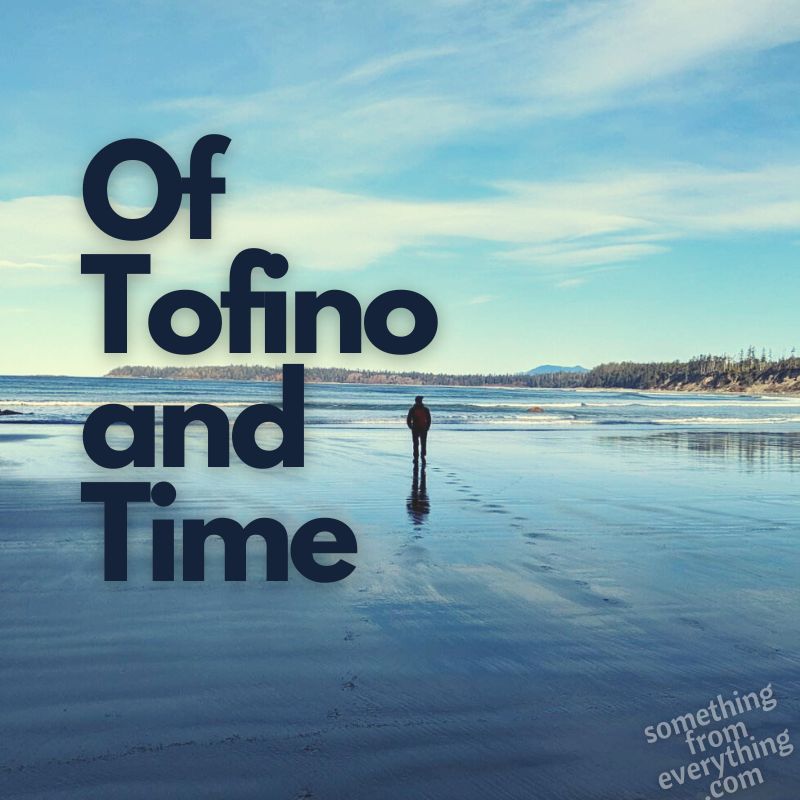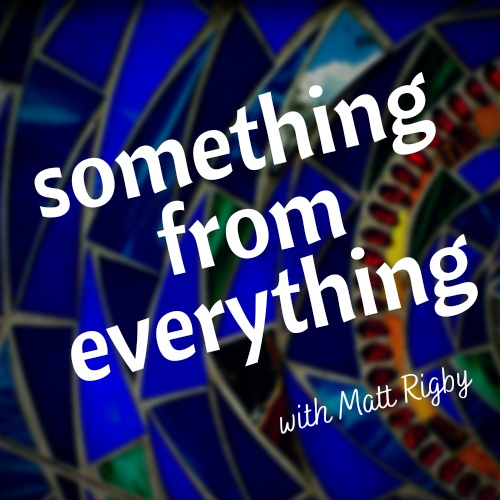
Time doesn’t seem to affect Tofino.
If you haven’t been to the small town perched atop the peninsula on the westernmost end of Vancouver Island, I can’t recommend it enough.
It’s well worth a visit. Maybe multiple visits.
This past spring break our family visited Tofino, and repeatedly drove between the 40 km highway between it and the neighboring town of Ucluelet. This area largely consists of the Pacific Rim National Parks reserve, and it is an undisputed embarrassment of natural riches for hikers, surfers and beachcombers alike.
All along the coast, dense rainforests filled with old growth cedars, douglas firs and western hemlock give way to driftwood laden sandy beaches. Our family spent five packed days walking the famous long beach and nearby coves, scaling jagged rock formations, and peering into tide pools. We stood under natural hot spring showers, and huddled in shallow sulfur rich pools. We navigated roots and ropes on vertical climbs, and trudged through mud that threatened to swallow our hiking boots whole (and once did). We climbed up cascading (and oftentimes precariously leaning) staircases, and placed countless steps on winding slick rainforest boardwalks.
And each time we would come to an expansive vista, or monument, or even a familiar food truck or surf shack, I would be hit with the same deja-vu-like feeling: that this moment was both novel and familiar. I felt as if I kept stepping into moments I had lived before.
Because I had.
As mentioned, Tofino is worth returning to, and this was my third visit to the area. My partner and I had camped near these same beaches nearly two decades ago when we were newly married. We returned again nearly eight years ago, with three young kids in tow. But of both of these previous trips, I have only the faintest of memories. Orphaned images, largely without connection or context.
Tofino is not unique in this, unfortunately. I’ll often find myself in familiar feeling situations, or re-introducing myself to someone whom I had met years earlier. In my immediate family my long term memory shortcomings are often the discussion of playful mockery.
But for some reason, this particular forgetting disturbed me. A place this breathtaking, and the memories made here, should not be so easily forgotten.
My partner has no such difficulty remembering these moments. In jest, or to assist my remembering, she uncovered some photos from our initial visit long ago. There was the indisputable proof: There we were, the people we once were, hair longer and lighter (unkempt and frizzy in the rainforest humidity), no wrinkles on foreheads, nor any deep creases around the eyes and mouth. There we stood, in a landscape that seemed untouched by time, posing on the exact same walkways, beaches and taco stands that we would visit so many years later.
The chronological distance from this picture felt unmeasurable. How much time had occurred between these experiences? Years? Moments? Lives?
What is the value of those experiences we don’t remember? An unfamiliar face smiling back at me from the photo would be less disturbing. These memories might as well have belonged to someone else. Someone who could recall them.
Frustration at myself, even self-loathing, waits at the door.
Excuses are there, if I want them. The passage of time takes its toll, as does sleep deprivation and the busyness of a household filled with young children. We’ve been fortunate enough to go on a lot of road trips, and see a lot of beaches in those nearly two decades, certainly there is some overlap and errors in recording, muddying the mental timeline.
But even reasonable excuses won’t protect me from the nagging suspicion that I’ve been missing out. And not just on memories of these specific trips. But from thousands of moments half lived, and soon forgotten. That regret will come not from making the wrong choices, but from distractedly sleepwalking through this one wild, and precious life.
In the midst of this trip, I began to think about the wonder about time, and the memories I was currently making. If I could remember more, perhaps time would not feel stolen, but full. Saturated. There I was, staring out into that endless ocean, my anxious, chattering internal dialogue quieted by the constant, cyclical roar of the sea. I want to take it all in, the rocks, the sea, the salty air. I want to cling to it, stubbornly, the way all these barnacles cling to the rocks beneath my feet.
I try to unroll time both backwards and forwards. I Imagine myself in another decade or two, reflecting on this moment, remembering each and every detail. What will that memory (this memory!) look like?
I recommit myself to taking in all that I can, even as I am unsure how. I take fewer photos, knowing all to well that the collection of images is a poor substitute for memory. Instead, I find myself taking mental snapshots, interrogating moments. I watch my youngest make a collection of shells for a hermit crab he’s found, and notice behind him the glasslike reflection of the early morning sand. I see the pride of my 13 year old, holding trepidation in check as he climbs above the crashing waves of an outstretched rock. I feel the thumping in my chest as I climb vertically amongst mud and roots that serve as both step and obstacle. I watch the way my eldest’s hair dances in the wind as she scours the horizon line of the sea for fin or blow. I stare at the unexpected head of a sea otter, surfacing in the immediate wake of our boat.
I take in more. I take in the best salmon taco I’ve ever had. I take in gelato ice cream so good we end up returning three days in a row (lavender honey BTW, barely gets the nod for the communal favorite). I take in the sounds of aggressive and hopeful crows that stand sentry at each and every food truck, stroking their beaks in hostile anticipation.
I take in the inconvenient and unpleasant. The copious amount of smoke from waterlogged firewood. The inflation of every grocery item or side of fries. The feel of my feet as I step into still damp shoes from the night before. The toilet that threatens to overflow due to a temperamental septic system.
I take it all in. Or at least I try to. I keep taking it in, like an impossibly deep breath, filling my lungs with salty air until they’re ready to burst.
And then I hold it. As if that act can cement all of these memories. As if the sheer force of will will capture the entirety of these moments. Eventually, I release the tension, expel the air from my aching lungs.
Now, back home and a few weeks later, I’m not sure how well I’ve done. Have I paid close enough attention? Will this vivid memory be the same in a year? In ten? In twenty? Time will tell.
And perhaps even more importantly, how will I view time, then? Will I see it as something scarce, something relentless and fleeting, never once stopping or even slowing down to make sure that I am paying attention?
Or will I see it as generous? Not only for the time it has already given me, but for those moments where it seemed to tap me on the shoulder and say “look how many moments we have already shared” and “here is another”.
How could I see time as anything but generous? Time has already given me enough of itself that I have both experienced, and forgotten, thousands of moments. And despite this, despite all that I have squandered before, time repeatedly shows me a brand new moment, filled with both novelty and familiarity.
And when I find myself frustrated at all that I have missed before, time never seems vindictive or punitive. It simply asks, over and over, “what would you like to pay closer attention to, this time?”
And I breathe in, grateful for one more chance to try and take it all in.

Leave a Reply